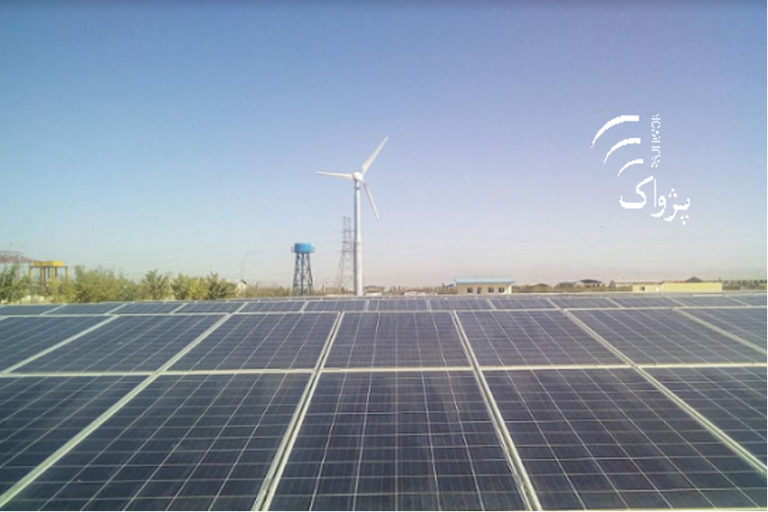Indonesia, the fourth-most populous country in the world, faces serious challenges in managing greenhouse gas (GHG) emissions generated by the transportation sector. With the sector’s contribution to total energy emissions reaching 27% in 2019, the government has established policies and strategies to encourage the transition to renewable energy, primarily through the use of electric vehicles (EVs). This article will discuss the innovations implemented as well as the challenges faced in renewable energy policies in Indonesia’s transportation sector (World Bank Report, 2023); (Climate Action Tracker, 2024).
The Indonesian government has issued various policies to support the use of renewable energy in transportation. One of the critical steps is the implementation of Presidential Regulation No. 55 of 2019, which encourages the development of Low Carbon Emission Vehicles (LCEV) from 2022 to 2035 (Thenniarti, 2023). This policy aims to accelerate the adoption of electric vehicles and biofuel vehicles. Minister of Transportation Budi Karya Sumadi emphasised that the transportation sector is the main focus of the transition program to use renewable energy. The use of battery-based electric vehicles is expected to reduce dependence on fossil fuels and improve air quality. In this context, the government targets the portion of new and renewable energy in the national energy mix to reach 23% in 2025 and increase to 31% in 2050 (Nugroho, Sundari, & Soekarno, 2023).
Innovation in Transportation Infrastructure
To support the transition to electric vehicles, the Indonesian government is committed to building the necessary infrastructure, including Public Electric Vehicle Charging Stations (SPKLU). The Ministry of Transportation targets that by 2025, 10% of the total urban public transportation car population will use electric vehicles. This is a strategic step to reduce greenhouse gas emissions and improve air quality in big cities (Indonesian Ministry of Transportation, 2023). With adequate SPKLU, electric vehicle users will find it easier to charge, thus encouraging people to switch to this environmentally friendly vehicle. In addition, the government also plans to provide additional facilities to support the use of electric vehicles in public transportation, such as electric buses, that can reduce pollution and improve transportation efficiency.
Another significant innovation is the development of rail-based mass transportation systems, such as railways. This system has proven to be more efficient and environmentally friendly compared to motor vehicles. Rail-based mass transit can reduce energy consumption by up to 25 times more efficient than buses and 10 times more efficient than aeroplanes. Projects such as the Jabodetabek LRT and Jakarta MRT are concrete steps towards a more sustainable transportation system (Ministry of Transportation, 2023). By developing efficient mass transportation infrastructure, the government is not only reducing reliance on private vehicles but also providing a better alternative for the public in terms of mobility.
However, despite various initiatives and policies to support this transition, challenges still need to be addressed. One of the main challenges is the need for collaboration between multiple stakeholders, including the government, the automotive industry, and the public. This synergy is essential to ensure that the infrastructure and policies implemented can run effectively. In addition, education to the public about the benefits of electric vehicles also needs to be improved so that people better understand the importance of switching to cleaner and more sustainable transportation. With a comprehensive and collaborative approach, Indonesia can realise the vision of environmentally friendly and sustainable transportation in the future.
Challenges in Policy Implementation
Although various innovations have been introduced, the implementation of renewable energy policies in Indonesia’s transportation sector faces a number of significant challenges. One of the main challenges is the low level of investment in renewable energy projects. Many investors are still hesitant to invest due to the high-risk perception and regulatory uncertainty that comes with it. This uncertainty creates obstacles to the development of the infrastructure needed to support the transition to renewable energy, including electric vehicles (Lestarini, 2024). Therefore, concrete steps are necessary to create a more attractive and stable investment climate for investors. In addition, the charging infrastructure of electric vehicles in Indonesia still needs to be improved, which hinders the widespread adoption of electric cars. The inadequate existence of Public Electric Vehicle Charging Stations (SPKLU) makes electric vehicle users find it easier to charge, thereby reducing public interest in switching to this environmentally friendly vehicle. To address this issue, collaboration between the government and the private sector is essential in accelerating the development of the necessary infrastructure. With solid cooperation, it is hoped that the number of SPKLU can increase significantly, supporting the growth of the electric vehicle ecosystem in Indonesia (Ministry of Energy and Mineral Resources, 2024).
Another challenge that is no less important is the need for public education and awareness about the benefits of electric vehicles and renewable energy. The public needs to be convinced that switching to electric cars is not only good for the environment but also provides economic benefits in the long run. Effective education can help change people’s perceptions of the costs and benefits of using electric vehicles, as well as improve their understanding of their positive impact on air quality and health. By increasing public awareness and providing clear information, it is hoped that more people will be willing to invest in these green technologies, thereby accelerating the transition to a more sustainable transportation system.
Long-Term Benefits of the Energy Transition
Although the challenges faced in the transition to renewable energy are significant, the long-term benefits for Indonesia are enormous. By reducing dependence on fossil fuels, the country can not only improve its energy security but also contribute to reducing greenhouse gas (GHG) emissions, which are the leading cause of climate change. This transition is expected to have a positive impact on air quality, especially in big cities that often experience severe pollution due to emissions from motor vehicles. With better air quality, public health will also be maintained, thereby improving the overall quality of life.
In addition to environmental benefits, the transition to renewable energy also opens up new economic opportunities for Indonesia. The increasing use of green technology and electric vehicles can create new jobs in the renewable energy sector and the automotive industry. This will not only help reduce the unemployment rate but also encourage sustainable economic growth. With the right investment and support from the government and the private sector, Indonesia can become a leader in renewable energy innovation in Southeast Asia while setting an example for other countries in their efforts to achieve environmental and economic sustainability.
Long-Term Plan
The government is committed to achieving net-zero emissions (NZE) by 2060 or sooner. For this reason, a coherent roadmap is needed, and the community must be involved in this transition process. The Ministry of Industry is also planning a decarbonisation roadmap for the industrial sector with incentives for the energy transition. With these policies, Indonesia seeks to create a sustainable electric vehicle ecosystem and reduce the environmental impact of the transportation sector while increasing national energy security. In the future, the synergy between the government, the automotive industry, academia, and civil society is essential to ensure that these policies can be implemented effectively and efficiently in order to achieve the common goal of a cleaner and healthier environment for future generations.
Conclusion
Indonesia’s renewable energy policy in the transportation sector is an essential step towards reducing greenhouse gas emissions and achieving the net-zero emission target by 2060. Despite significant challenges in its implementation, innovations in policies and infrastructure demonstrate the government’s commitment to creating a sustainable transportation system. With the support of all parties—the government, the private sector, and the community—Indonesia can realise a vision of clean transportation that is not only beneficial to the environment but also to the national economy as a whole. The success of this transition will depend heavily on cross-sectoral collaboration and collective awareness of the importance of maintaining environmental sustainability for future generations.










+ There are no comments
Add yours